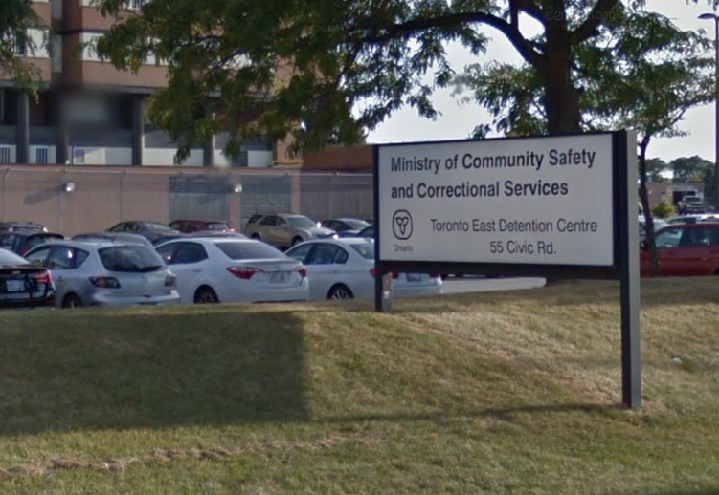TORONTO – The death of yet another immigration detainee in custody has sparked anger and raised alarm bells among human rights groups looking for elusive answers.

The latest fatality, shrouded as usual in secrecy, occurred at the Toronto East Detention Centre on Monday, according to authorities.
Canada Border Services Agency refused to provide any details as to the identity of the prisoner or the circumstances of the death.
Rights groups called the death and the border agency’s unwillingness to share information unacceptable.
“Nobody should die while they are in the custody of CBSA,” Mitch Goldberg, president of the Canadian Association of Refugee Lawyers, said in a statement Wednesday.
“The public needs answers. What was the cause of death? Could this death have been prevented? Did some action or inaction on the part of CBSA and the correctional facility that they use to house their detainees contribute to their deaths?”
Critics have long denounced the Canadian system of potentially indefinite detention for foreigners – often in provincial jails that house criminals – who run afoul of immigration rules but may not be subject to any charges.

Get daily National news
They note at least 13 people have died in custody of Canadian immigration authorities since 2000.
“This latest death is a further stain on CBSA’s reputation and highlights the urgent need for reform of the way immigration detention is practised in this country,” said Samer Muscati, with the University of Toronto international human rights program.
CBSA announced the death in a release Tuesday.
“The CBSA will also be reviewing the circumstances of the death,” the release said. “The CBSA is not in a position to release further information while the investigation is ongoing.”
In a similar case last June, a cloak of secrecy descended on the death of a man in agency custody who died after being taken to a hospital in Peterborough, Ont. An agency statement, issued about 18 hours after the death, gave no further information about who he was, where he was from or how he died.
Some information emerged later – the man was 39 and under escort from police to hospital – because the province’s special investigations unit was called in. The unit said it would defer to the wishes of the man’s family as to the release of his identity.
Canadian immigration authorities routinely send detainees to provincial jails, something the president of the Canadian Council for Refugees called “deeply problematic.”
“CBSA must bear responsibility for the health and well-being of detainees, yet they have no direct supervision when detainees are in provincial jails,” Loly Rico said in a statement.
Critics said the latest death underscores the urgent need for independent oversight of Canada’s border police, especially given their broad powers of arrest and detention.
“CBSA remains alone among major Canadian law enforcement agencies in having no independent oversight,” said Laura Track with the BC Civil Liberties Association.
The issue also drew the attention of Amnesty International, which denounced the “glaring oversight gap.”
The group’s secretary general in Canada called it “unconscionable” that someone could die in immigration custody, but no independent agency has a mandate to investigate and ensure human rights obligations have been met.
Last June, a University of Toronto report found almost one-third of foreigners detained in Canada are placed in facilities intended for criminals. Such detentions violated international human-rights law and amounted to cruel, inhuman and degrading treatment, the report said.

Comments